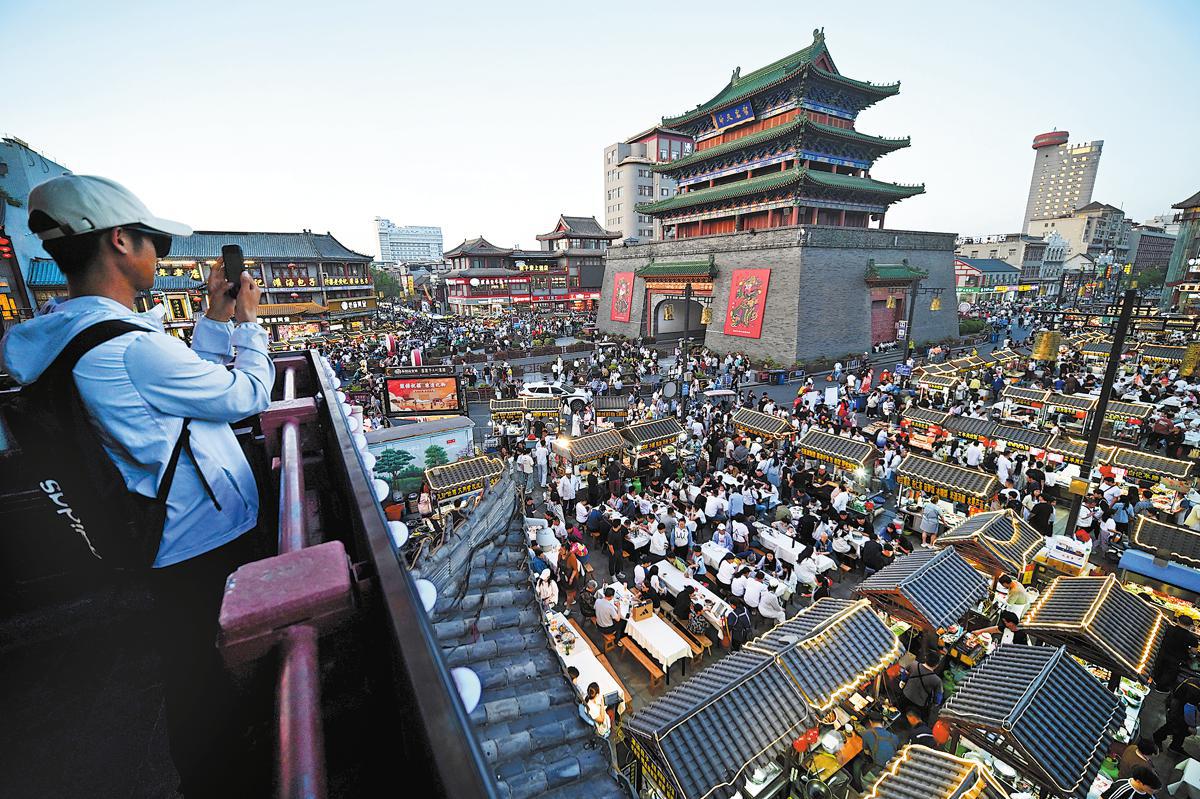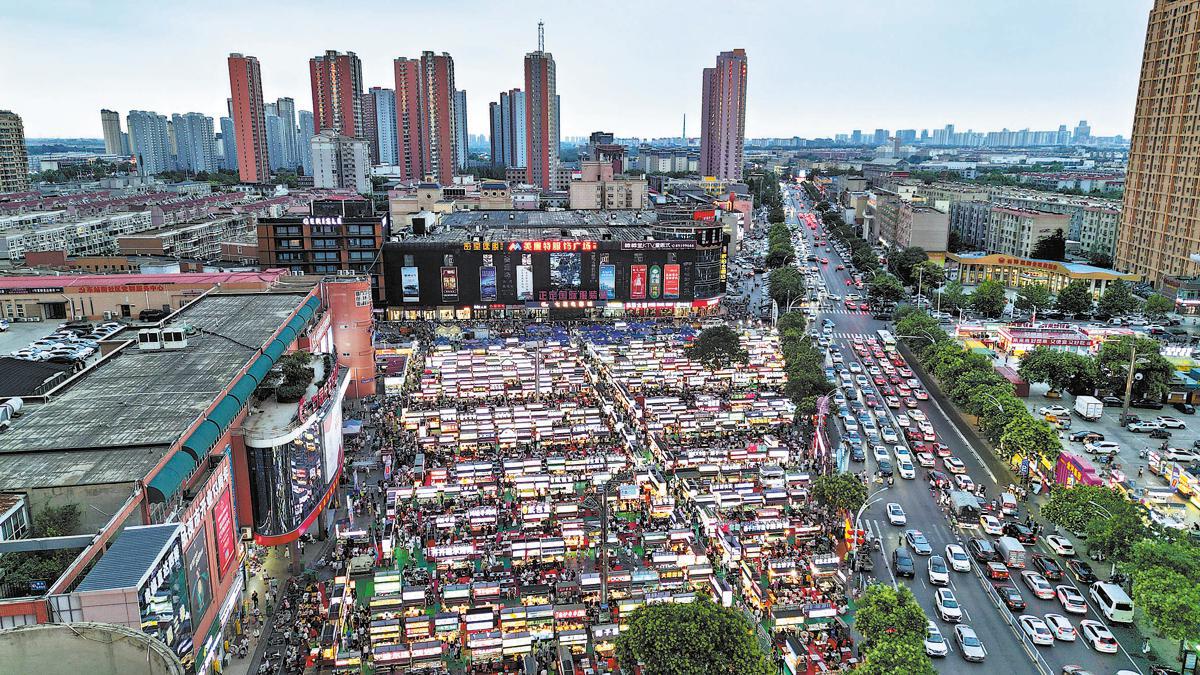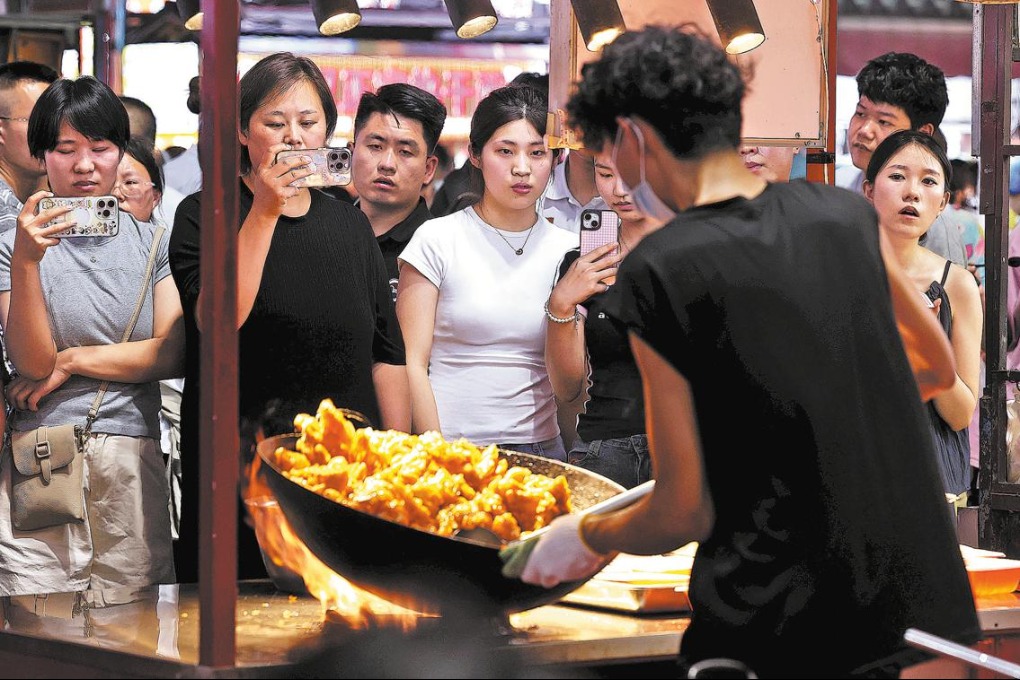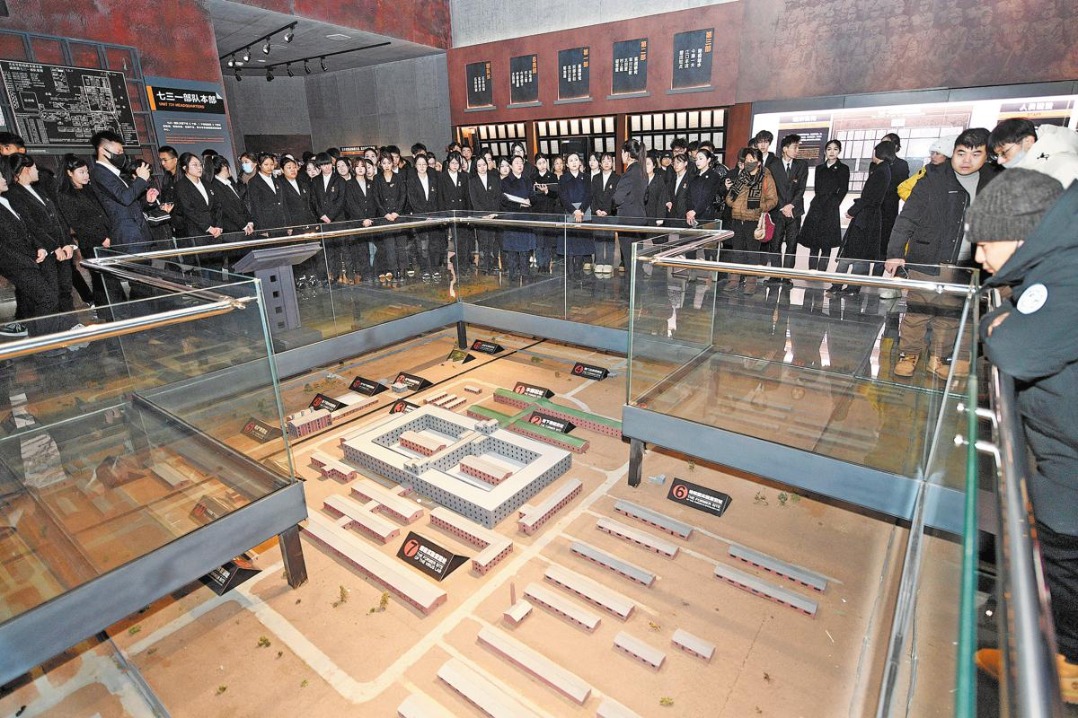With 'smoke, fire and steam', night markets erupt into life
Vibrant lantern-lit venues rekindle interest in centuries-old traditions






'Sleepless city' awakes
In another ancient capital, Kaifeng in Henan province, the legacy of a 1,000-year-old night market is being kept alive through an emphasis on immersive cultural heritage.
Kaifeng, also known as Dongjing, was the eastern capital during the Northern Song period.
A vivid description from the Song Dynasty chronicle Dongjing Meng Hua Lu — Eastern Capital: A Dream of Splendor — captures the nocturnal activities of the former imperial capital: "Night markets lasted until the third watch or midnight, and reopened as early as the fifth watch at around 3 to 5 am".
Today, Kaifeng has transformed this heritage into Dasongbuyecheng or the Great Song Dynasty Sleepless City, where a dazzling tapestry of history, culture and modern vitality intertwine after dark.
"Kaifeng's night markets are a living continuation of a thousand years of Song Dynasty charm," said Guo Juan, director of the Intangible Cultural Heritage Division at Kaifeng's Culture, Radio, Television, and Tourism Bureau.
"From the night bustle of the Northern Song era to today's night markets, they fundamentally reflect the Chinese yearning for vibrant nighttime cultural life," she said.
Kaifeng now boasts two national-level and eight provincial-level nighttime cultural tourism consumption clusters, as well as 12 scenic spots operating night tours, forming a rich "sleepless city" portfolio, Guo said. "People taste delicious food, and feel the depth of culture at the same time," she said.
Hui Dong, an associate professor of the School of History and Culture at Henan University, said Kaifeng's advantage lies in its deep-rooted night market cultural tradition.

"The night markets here have transcended the realm of pure dining, forming a multidimensional night economy ecosystem where diverse elements converge and integrate," Hui said.
For Bai Jianchao, a 4th-generation inheritor of the intangible cultural heritage known as Bainian Baiji peanut cake craft, this revival is exciting.
"From our single-flavor handmade cakes in 1912 to today's cultural-creative product lines, it's been a century of integrating heritage and innovation," he said.
Young people dressed in hanfu, a traditional Chinese garment, at night markets, and parents teaching their children traditional crafts are evidence of a cultural resurgence, he said. "This is cultural confidence made tangible," he said.
Bai believes places like Zhengding, Kaifeng, and Zibo in Shandong province, which saw a barbecue craze in 2023, are linked by a common cultural thread.
"From Zibo's BBQ craze to Kaifeng's continuing buzz and Zhengding's authentic vibe, it's about fulfilling a basic need for yanhuoqi for ordinary people," Bai said, adding it is more attractive than high-end consumption to most people.
He believes the ancient tradition of night markets is experiencing a vibrant renaissance.
"Each model, though distinct, powerfully demonstrates the enduring economic engine and cultural magnetism of yanhuoqi, or lantern-lit vibrancy," said Bai, adding the markets provide livelihoods for thousands, offer affordable enjoyment for millions, and serve as potent symbols of local identity and cultural confidence.
Contact the writers at zhangyu1@chinadaily.com.cn




















